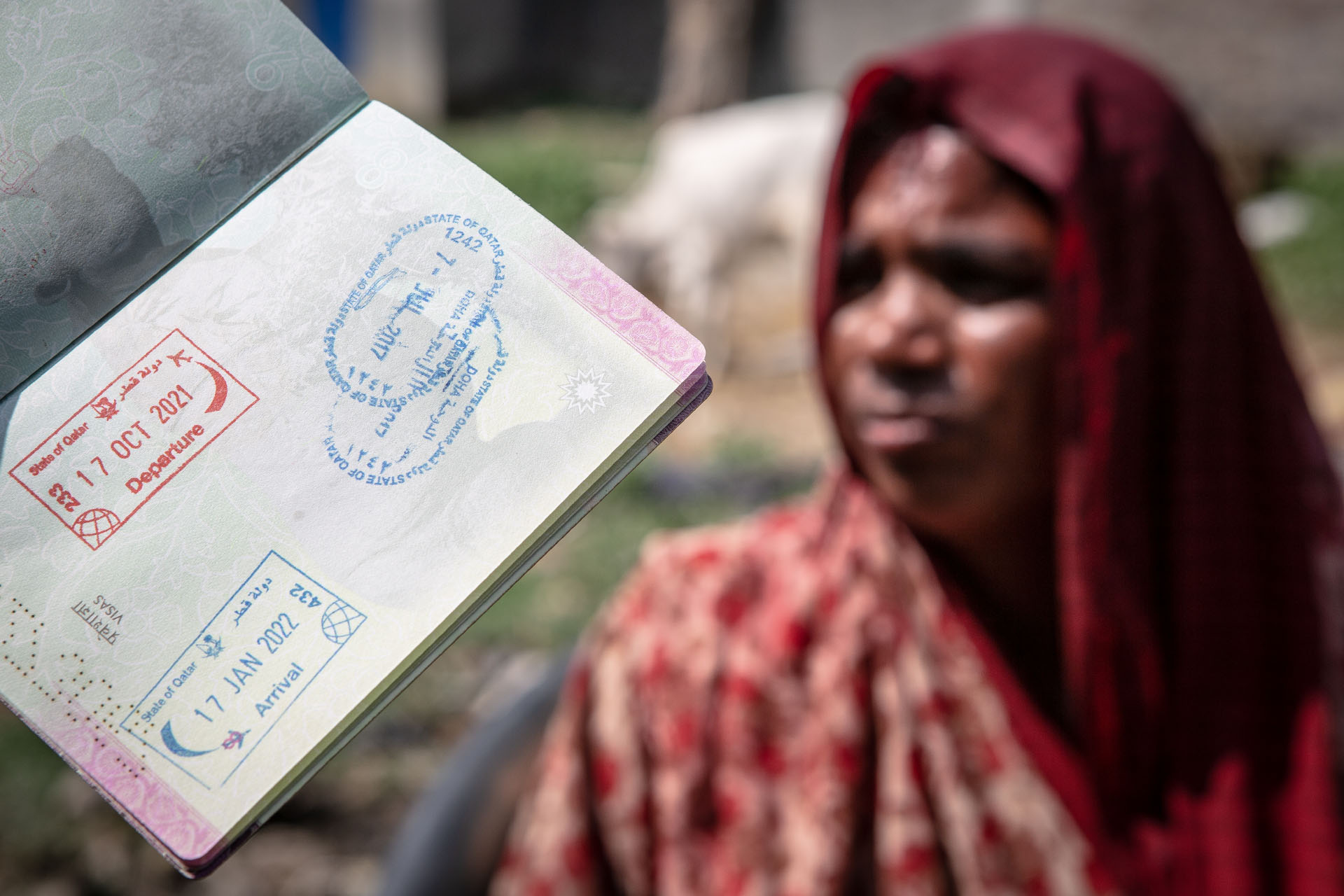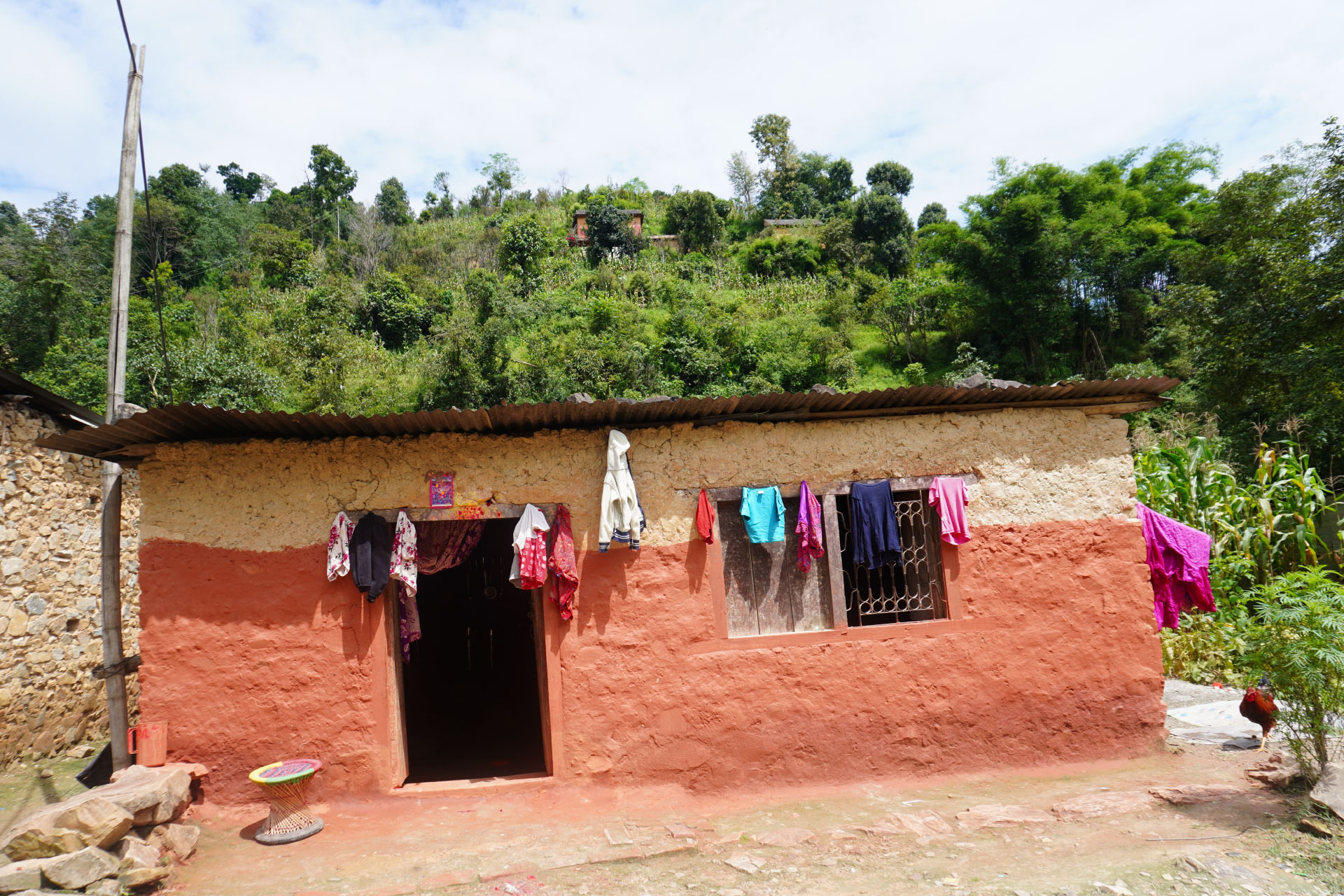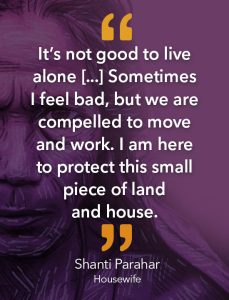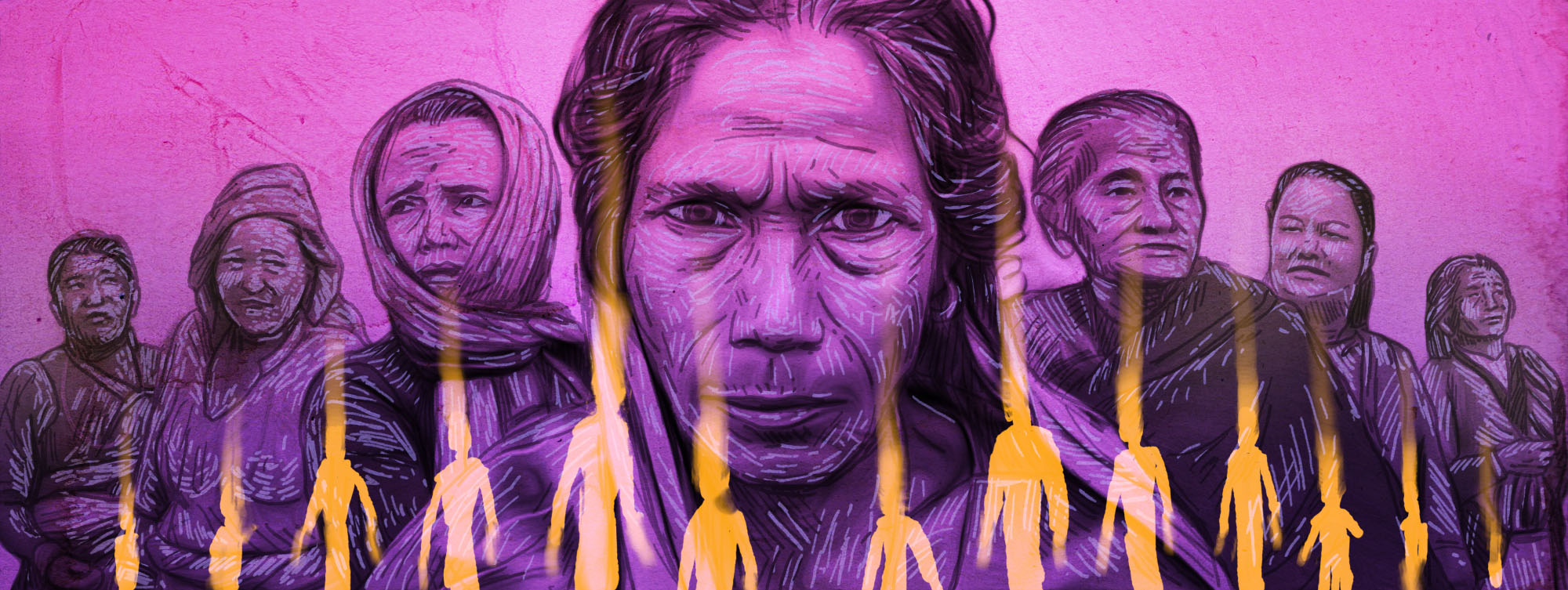|
Getting your Trinity Audio player ready...
|
A
bout three hours of arduous driving and hiking from Nepal’s capital is a village nearly bereft of men. In Bethan Chowk, which is part of the municipality of Bethanchowk southeast of Kathmandu (see interactive map below), Madan Parihar is the only male resident who is no longer a teenager and who is always around. In truth, if he hadn’t suffered a stroke three years ago, chances are the 63-year-old, whose wife had died while he was in India, would be working far from the village, like the rest of its men.
Gyanu Parihar’s husband, for instance, just left two months ago to work as a delivery boy for a pharmacy shop in Romania. Prior to that, he had spent a total of 15 years in Malaysia. According to Gyanu, he managed to visit home only twice all that time, although his first homecoming from overseas after they wed saw him staying in Nepal for three years.
Like practically all the males in Bethan Chowk – where the families are all Dalit and share the same surname, Parihar – Gyanu’s husband was trained to be a tailor. On average, males in Bethan Chowk leave the village once they turn 15 or 16 years old. Gyanu doesn’t say when her husband left Bethan Chowk for the first time to look for employment, but she does say that before they were married, he had already been working in Kathmandu as a tailor. She was 17 when they wed; she is now 35 years old.

“He had bigger dreams of building a house, providing for his family, and getting his children educated in a city school,” says Gyanu. “After just a few months of marriage, he left for Malaysia to work.”
It’s a story that is repeated across Bethan Chowk’s 50 or so households – and across generations. The women here all grew up with absentee fathers. Now most of them have absentee husbands. Says Gyanu: “I was fond of only two things in life: children and Hindi songs. Children we could not plan because of long distances, and Hindi songs started to ache my heart and I could no longer play or sing them.”
Bethan Chowk, of course, has no monopoly on male labor migration. Nepal itself is a known source of workers for many countries, particularly India, Malaysia, and several in the Middle East. According to the 2021 census data, a total of 2.2 million Nepalis are abroad, out of whom 81.28 percent are male and 18.72 percent are female.
Click the right arrow to view the infographic.
Sources: Nepal Economic Forum, Nepali Times, Boston University, International Organization for Migration
Grinding poverty and the lack of employment opportunities in their home country are just among the many reasons why Nepalis seek work overseas. There are also many Nepali men who leave their families and villages in search of employment but remain within the country, working in the cities and living in dormitories or with relatives to save money.
Yet whether these male migrant workers end up abroad or in a city in another part of Nepal, the toll on the women they leave behind — wives, daughters, sisters, and mothers – can be heavy.
Added burdens on already heavy loads
With their husbands away for months or years at a time, the women take on additional responsibilities on top of looking after the children and the elderly, and keeping the household running. They plant and harvest crops usually for their family’s own consumption since they usually own only small plots, if at all. They chop and haul firewood and sometimes tend to farm animals.
When their husbands call – which is always dependent on the strength of cell signals, time zones, and the rules in the men’s workplace – they have to share the time with the children. While there is sometimes a neighbor or two to whom the women can tell their troubles, the reality is that everyone else in the village is usually busy or too preoccupied with their own worries.
“We can’t compare these women with single mothers because the situation is completely different,” says Reetika Subramanian, a journalist whose current research as a PhD candidate at the University of Cambridge is on migration, early marriage, and climate. “But I can surely say that in these cases, the long distance brings more insecurity and everything falls on the women as there is more pressure and work that women have to do.”
“There is definitely an additional emotional drain as well,” she adds. “This type of migration also results in child marriage, stress, health issues, et cetera, especially in the global south. The kind of impact on women is far behind what we think about and goes beyond imagination. There are also long-term impacts on the families where we see a lack of kinship relationships.”
“Also,” Subramaniam continues, “the men work in dangerous conditions, and they start working when they are 15, 16 years old and when they come back their bodies are already torn and can’t take more strain. And the entire responsibility to hold the family together falls on the women.”
For sure, the generational character of male labor migration in the village has helped make it a matter of fact for everyone, as well as led to resilience among the women. Yet after one mother says that she is used to the setup and can bear with it, one of her daughters tells ADC in a private conversation: “Madam, I want to tell you something. My mother lied to you, at times she cries when she speaks to baba (father) on the phone. I think she misses him, but please do not tell her (I told you).”
“When I will get married I would stay with my husband,” says the teenager who dreams of becoming a teacher. “My mother had to stay away from my father and suffer, probably because she was not educated or skilled and could do nothing in the city. But I will make sure I will have both.”
Empowerment for some, dependence on others
Writing on the findings of her own research on the impact of male labor migration on women in Nepal, Dr. Pratistha Joshi Rajkarnikar of Boston University’s Global Development Policy Center asserts that the migration of men for work can actually result in the empowerment of the women they leave at home – depending on certain circumstances. Says Rajkarnikar in a December 2020 post on the Center’s blog: “Women who take on the role of household heads are more likely to gain decision-making power, while those left under the supervision of other members (usually their in-laws) may suffer from reduced decision-making ability.”
“However,” she notes, “even when women gained decision-making power, the most important decisions – especially those related to financial matters – were made by men. In fact, women often worried about not being able to manage money by themselves and preferred consulting with their husbands, partly because of their economic dependence on men. In extended households, where women experienced either a decline, or no change in their decision-making role, the in-laws were the primary decision-makers.”
In Bethan Chowk, that economic dependence persists largely because most of the women have no time for themselves – much less for improving their skills that could help them contribute to the family purse and perhaps also have some money of their own. Going beyond 10th grade can even be a challenge for both males and females in the village because that is the last level offered by the school in the district. Higher education would mean going to go to the nearest town or city, which most of Bethan Chowk cash-strapped families would not be able to afford.
Binita Parihar, a mother of four whose husband is working as a tailor in Kathmandu, also describes a day that is fully packed and which leaves her little breathing space: “I get up around six in the morning and go to bed by 10 at night. I just rest an hour after lunch. Most of my time is consumed by household chores, preparing food for children, and taking care of their needs. Apart from bathing and eating, I have no time for myself…I do not have time even to comb my hair.”

Then again, having too much time on one’s hands may not be that good as well for some women. Gyanu, who has remained childless after almost 20 years of marriage, says, “It was quite difficult to live, life felt meaningless. I would rewash utensils that I would have already washed just to keep myself busy. I wanted to have children and a family that I could call my own, but it doesn’t matter (now). What matters to live and survive is money which we will not have if my husband will not move or work.”
 For those who have only sons, the future can also mean being alone until their husbands finally come home for good, or the sons marry and leave their wives with their mother.
For those who have only sons, the future can also mean being alone until their husbands finally come home for good, or the sons marry and leave their wives with their mother.
At the moment, Shanti Parihar, 45, lives alone in the house built with the earnings of her husband and their two sons. All three are working far away and may not be back any time soon.
“It’s not good to live alone,” says Shanti. “Sometimes I feel bad, but we are compelled to move and work. I am here to protect this small piece of land and house.”
“All my life I took care of the household, farm, and children, and now I am taking care of this house that my sons and husband put together after working really hard,” she says. “It feels like I have no life of my own and will never have one, ever.”◉























